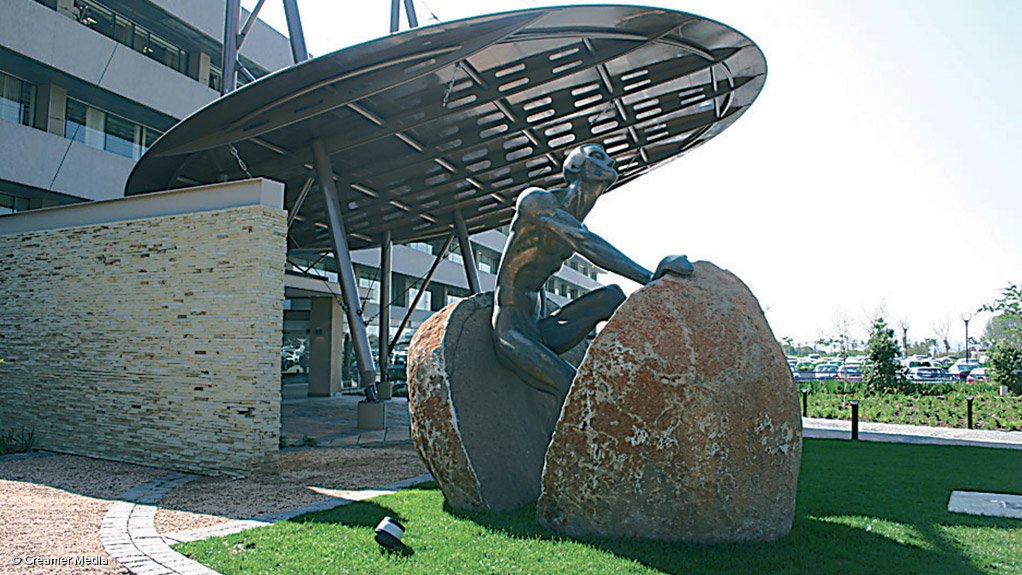Eskom execs forego bonuses ahead of likely request for more support
Senior executives at State-owned electricity supplier Eskom have agreed to forgo their bonuses for the financial year 2013/14 in light of the financial constraints afflicting the utility and ahead of possible Cabinet deliberations on additional future support for the utility.
The identities of the executives who agreed to the arrangement have not been released, nor have details as to whether former CEO Brian Dames, who stepped down at the end of March, will be affected.
Spokesperson Andrew Etzinger told Engineering News Online that further information would be made available in Eskom’s “forthcoming annual results announcement”.
Public reaction to executive bonuses at Eskom has been extremely negative over the past few years, particularly as the depth of South Africa’s power crisis came to be known.
In 2012/13, total remuneration for the utility’s executive and nonexectitive directors and executive managers rose to R57.5-million from R54-million in the prior year, with Dames and then finance director Paul O’Flaherty accounting for R14.4-million of that total.
The other eight executive managers collectively earned R36.6-million last year, while the group’s nonexecutive directors collectively took home R6.4-million.
Remuneration contracts for Eskom executives are made up of a guaranteed cash portion and compulsory benefits, as well as short- and long-term incentives.
Eskom would not be drawn on the rand value of the bonuses forfeited, nor how the decision was likely to affect the total executive remuneration charge for 2013/14. But acting CEO Collin Matjila made a direct link between the decision and the utility’s financial sustainability.
Eskom estimates that it will face a R225-billion revenue shortfall between 2013 and 2018 as a result of having been granted yearly tariff increases of 8% for the five-year period, instead of the 16% a year it had requested from the National Energy Regulator of South Africa (Nersa).
Matjila said that, by agreeing to forgo their annual performance bonuses, Eskom’s top executives were acknowledging the financial constraints and their role in helping to cut costs. “The board welcomed this move as the company is implementing efficiency intervention initiatives to achieve long-term financial sustainability,” he added.
Eskom initiated a business productivity programme in 2013 to extract efficiencies and cut waste. And, at the start of the current financial year, which began on April 1, a special joint committee, comprising board and executive managers, was established to consider a range of “nonconventional sustainable funding solutions, including equity/equity-like instruments”.
The Department of Public Enterprises, the Department of Energy and the National Treasury were also working with Eskom to find a solution to its financial problems, which could include a further equity injection. In addition, Eskom had made a regulatory clearing account submission to Nersa arising from the second multiyear price determination period (MYPD2), which was in operation between 2010 and 2013.
Should Nersa find that Eskom had prudently incurred expenses not catered for in the tariff, it could determine to give Eskom an increase over and above the 8% already sanctioned for the 2015/16 year.
Eskom finance director Tsholofelo Molefe is on record as stressing that the utility’s cash flow situation remains stable, but has indicated that Nersa’s MYPD3 determination had left Eskom with weak credit metrics.
Matjila underlined the point in a statement, and noted that, while significant shifts had been made to improve internal efficiencies, the revenue shortfall would not be closed “by belt tightening alone”.
It has been reported that the State-owned utility might be seeking a R50-billion equity injection along with further upward tariff adjustments to safeguard its sustainability.
“It remains important to move towards a cost-reflective tariff urgently,” Matjila said, adding that Eskom’s financial sustainability was critical to ensuring that the lights remained on while it completed its new build programme.
Comments
Announcements
What's On
Subscribe to improve your user experience...
Option 1 (equivalent of R125 a month):
Receive a weekly copy of Creamer Media's Engineering News & Mining Weekly magazine
(print copy for those in South Africa and e-magazine for those outside of South Africa)
Receive daily email newsletters
Access to full search results
Access archive of magazine back copies
Access to Projects in Progress
Access to ONE Research Report of your choice in PDF format
Option 2 (equivalent of R375 a month):
All benefits from Option 1
PLUS
Access to Creamer Media's Research Channel Africa for ALL Research Reports, in PDF format, on various industrial and mining sectors
including Electricity; Water; Energy Transition; Hydrogen; Roads, Rail and Ports; Coal; Gold; Platinum; Battery Metals; etc.
Already a subscriber?
Forgotten your password?
Receive weekly copy of Creamer Media's Engineering News & Mining Weekly magazine (print copy for those in South Africa and e-magazine for those outside of South Africa)
➕
Recieve daily email newsletters
➕
Access to full search results
➕
Access archive of magazine back copies
➕
Access to Projects in Progress
➕
Access to ONE Research Report of your choice in PDF format
RESEARCH CHANNEL AFRICA
R4500 (equivalent of R375 a month)
SUBSCRIBEAll benefits from Option 1
➕
Access to Creamer Media's Research Channel Africa for ALL Research Reports on various industrial and mining sectors, in PDF format, including on:
Electricity
➕
Water
➕
Energy Transition
➕
Hydrogen
➕
Roads, Rail and Ports
➕
Coal
➕
Gold
➕
Platinum
➕
Battery Metals
➕
etc.
Receive all benefits from Option 1 or Option 2 delivered to numerous people at your company
➕
Multiple User names and Passwords for simultaneous log-ins
➕
Intranet integration access to all in your organisation



















